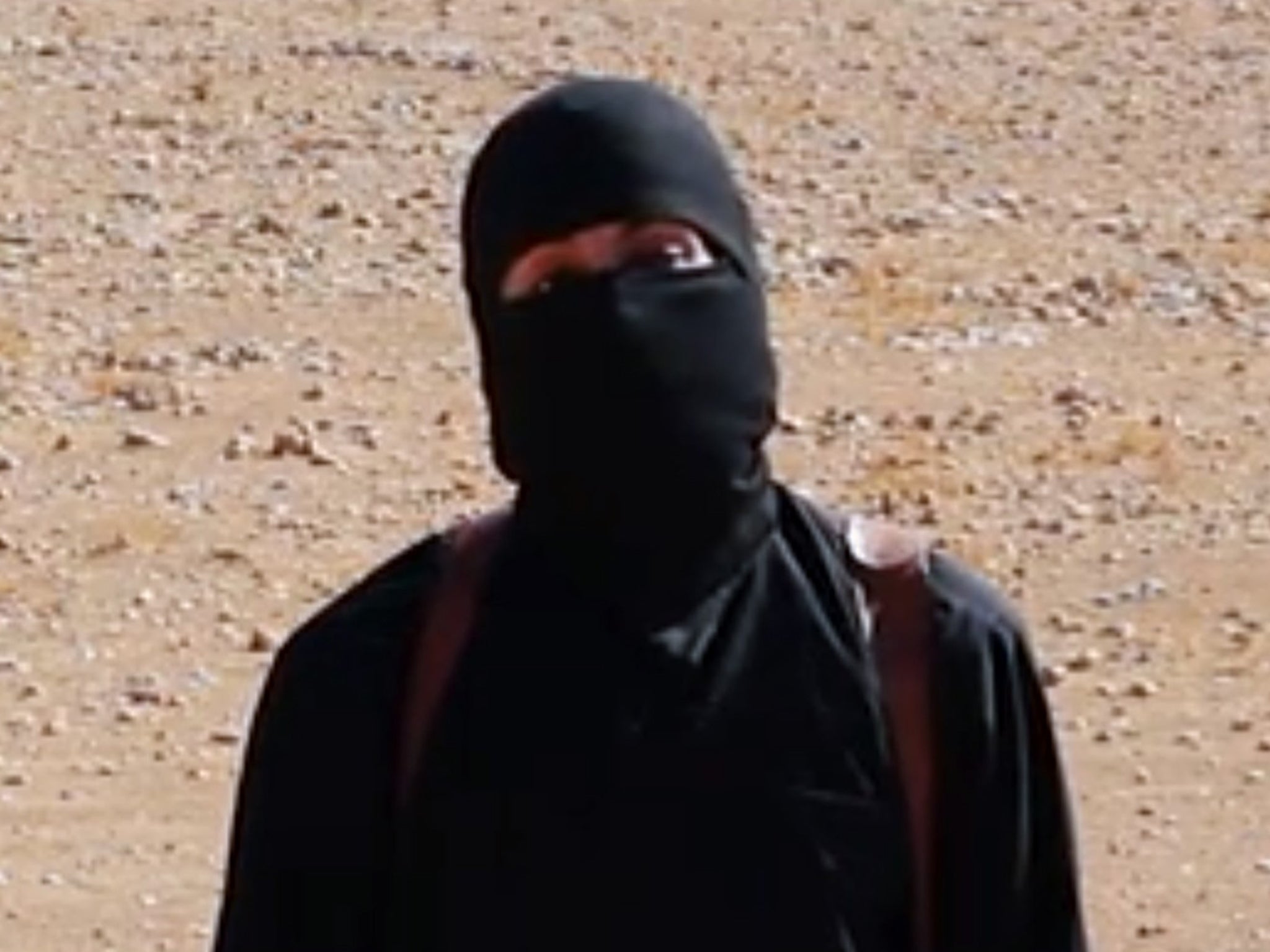'Jihadi John': Security services defend their record over failure to stop Isis ‘executioner’
With finite resources, this is taking place at the expense of counter-espionage when the Russians and the Chinese are raising their spying game

More than half of MI5’s effort is now focused on countering terrorism and the overwhelming majority of plots facing the UK are from Islamist extremists, according to Andrew Parker, the director-general of the service.
With finite resources, this is taking place at the expense of counter-espionage when the Russians and the Chinese are raising their spying game.
Half of that counter-terrorist effort, the current ‘C’ disclosed, is now related to Syria and Iraq with 600 British Muslims having gone there to fight. Just two years ago, his predecessor took the view that was the problem of the sister service, MI6. Now we know these hate-filled and indoctrinated young men are determined to bring the jihad home.
The pressure is relentless. Four major plots last year which could have ended in significant loss of lives, three of them in the last few months alone. Terrorist-related arrests up 35 per cent in the past four years, with 145 convictions. The Home Office has removed 65,000 items from the internet for “glorifying terrorism”; 74 organisations have been prescribed as supporting terrorists.
Several thousand suspects are having to be watched to a greater or lesser degree: it can take up to 50 people to carry out 24-hour surveillance on one target. MI5, MI6 and GCHQ accept that they have been well-funded. What they want are greater powers for communications interception – a matter of alarm for civil-liberties groups.
Serious attempts to maim and kill are being thwarted on a regular basis, is the message from the law agencies, But with the warning that one will get through, the old IRA message to Margaret Thatcher after the Brighton bombing, has been dusted off for use: “You’ve got to be lucky all the time, we have to be lucky just once.”
As Eliza Manningham Buller, a former director-general of MI5, pointed out: “It is not the prevention of attacks, but the ones which get through that are remembered.”
Professor Paul Wilkinson, an academic and security analyst, said: “Fighting terrorism is like being a goalkeeper. You can make 100 brilliant saves but the only shot people remember is the one that gets past you.”
The Government and the law agencies could have responded to the allegations made by Cage. Yet on Thursday, after the identity of Emwazi had been confirmed, unofficially, by American and British officials, the official line in London remained one of “no comment”.
The conduct of MI5 and MI6 would be examined by the Commons Intelligence and Security Committee. The Jihadi John case has similarities to the murder of Fusilier Lee Rigby. On that occasion the committee report cleared the services, but the report showed that chances to track the killers, Michael Adebolajo and Michael Adebowale, were missed on several occasions.
The security agencies have an inglorious history with Islamist extremists. Violent groups were allowed to set up bases in the UK while they carried out bombings in North Africa, the Middle East and even France. Imams and teachers who pleaded for protection from the authorities after being threatened and driven out by violent fundamentalists, said that the police did not want to get involved in community issues.
The theory was that while based here these groups can be infiltrated and controlled, and that they would bomb elsewhere rather than their “home”. There was even a term for this amoral accommodation – “the covenant of security”.
Attacks like 7/7 showed the fallacy of the policy. Allowing Islamist clerics to have free range meant the rise of a generation of radicalised Muslim youths like Emwazi. Robert Emerson, a security analyst, said: “There is much criticism, justified, of countries like Pakistan providing safe haven to terrorists. But what happened here not so long ago was in the same vein.”
Tackling terror: In numbers
600 - British Muslims thought to have gone out to Syria and Iraq
‘Several thousand’ - suspects under various levels of watch
4 - major terrorist plots in the past year
35% - increase in terrorist-related arrests in the past four years (resulting in more than 140 convictions)
61 - people excluded from the UK on national security grounds (a further 72 have been excluded because their presence here was deemed not conducive to the public good)
74 - organisations proscribed for allegedly supporting terrorism.
65,000 - items removed from the Internet for ‘glorifying terrorism’
Join our commenting forum
Join thought-provoking conversations, follow other Independent readers and see their replies
Comments